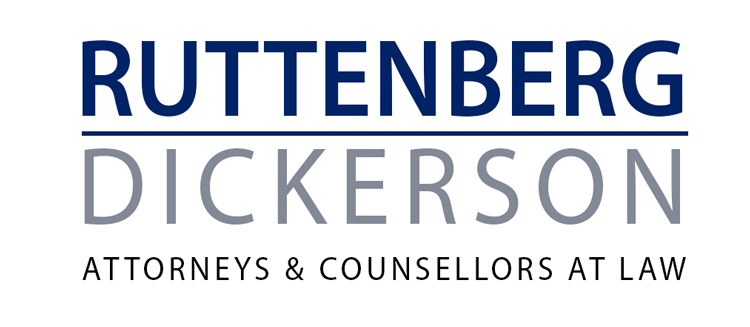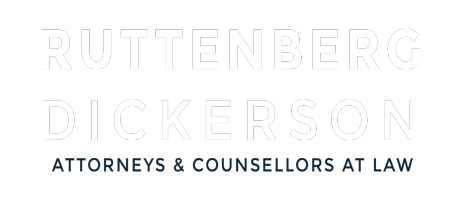Estate Planning Services
Wills & Trusts
Estate planning is essential to protecting your family and your assets. Good planning can reduce conflicts and tax liability later while ensuring that your assets are distributed in the way that you desire.
Our experienced legal team is here to help. Before estate planning, we analyze each client’s assets, business interests, and desires in order to craft a comprehensive plan that will meet their needs. If it is in the client’s interest, we use a combination of wills, trusts, and family entities to preserve assets. In doing so, we pay careful attention to the tax consequences and administrative costs of each of our client’s options. As circumstances change, we are here to reevaluate our clients’ estate plans to keep them up-to-date with the clients’ needs and changes in the law.
Attorneys
Tax
Our tax practice represents individuals, families, executives, trusts, estates and closely held businesses, including many high net worth clients, in various income, gift, estate and generation skipping tax matters. Our training and experience allows us to provide creative solutions in a wide range of circumstances.
Major planning areas include the establishment, sale or purchase of a business; choice of business entity such as an S-corporation or a limited liability company; tax favored transactions such as like-kind exchanges; wealth transfer planning; and income tax planning for individuals, various trusts and estates. We provide proactive tax planning that is specific to a client’s situation. Our goal is to establish practical tax saving arrangements that are consistent with the client’s other objectives and requirements. We represent clients in tax audits and disputes before the IRS, in cases that involve the interpretation and application of complex tax laws and procedures. We are vigorous advocates for our clients whether thousands or millions of tax dollars are in dispute. Although most cases do not require such action, we can also represent taxpayers who wish to file a complaint in the United States Tax Court in lieu of paying the disputed taxes first and filing for a refund.
Attorneys
Probate
Coping with the death of a loved one is always difficult. Our goal is to compassionately guide our clients through the complexities and uncertainties of the estate administration process. Our attorneys will assist you every step of the way
Depending upon the jurisdiction involved, we will admit the will to probate and prepare and file the necessary documents with the Probate Court, Commissioner of Accounts, Register of Wills, and appropriate taxing authorities. We are also experienced in using disclaimers and other post-mortem tax planning to preserve the estate’s assets. We are available to serve whether we have assisted you in drafting your estate plan or because circumstances require legal counsel.
Attorneys
Fiduciary Services
We understand the sensitive nature of fiduciary relationships, and will act with the highest degree of ethics and professional responsibility to serve our clients and their families. In representing fiduciaries, we provide attention to trust administration and compliance, as well as an in-depth understanding of the fiduciary/beneficiary dynamic.
When requested by our clients and under appropriate circumstances, we serve as trustees or personal representatives of trusts and estates. Service as a fiduciary requires not only technical skills but the exercise of sound judgment in a variety of situations. With a tradition of fiduciary service upon which to draw, we are well suited to deal with sensitive issues that can arise in a fiduciary relationship. Our attorneys provide full-service, personalized trust management to clients of the firm and their families.
Attorneys
Family Entities
Clients have a number of choices when determining how to hold their assets, whether those assets are operating businesses or passive investments. Considerations in selecting an appropriate entity include tax planning, creditor protection, succession planning, and other client-specific issues..
Many of the entities available for business purposes are also available for strategic family planning. Our attorneys will work with you to employ any entity or combination of entities to accomplish your objectives.
Attorneys
Litigation
The backbone of a successful negotiation in any company is the ability to have your position expertly presented to a court when necessary. We have significant experience representing our clients before all local, state and federal courts in Virginia, Maryland, and the District of Columbia.
Commercial and Civil Litigation: In commercial and civil litigation, we represent both businesses and individuals in the prosecution or defense of claims. We also represent clients in State and Federal court, before administrative agencies, in the prosecution or defense of claims and in every phase of litigation, from trial to appeal.
Attorneys
Wealth Preservation
No one wants their assets taken from them involuntarily or inadvertently. While it’s generally illegal to hide your assets from your creditors, it is not improper to protect your assets from unforeseen risks and claims.
When it is appropriate and in your best interests, our attorneys can advise you how to safeguard your assets from unknown future creditors. Such planning may also have the concomitant benefit of reducing your exposure to nuisance litigation.
Attorneys
Living Wills & Medical Powers Of Attorney
A living will allows you to control the withholding or withdrawal of life-prolonging medical treatments when you are unable to otherwise communicate your desires. A medical power of attorney appoints someone to make healthcare decisions for you when you are unable to do so..
Having these documents in place can save you from prolonged physical suffering. Additionally, your loved ones will be free from having to make heartbreaking decisions and can avoid the family conflicts that can arise when they disagree about the medical treatments they believe you would have wanted. Our attorneys will help you understand your options and will draft a living will that fulfill your wishes and needs.
Attorneys
Daniel H. RuttenbergSuccession Planning
Most businesses do not survive to the next generation. Business owners and individuals seek our services to develop strategies for a smooth and viable transition of ownership and to maximize the value of their company. Our clients range from new companies to established businesses..
For our business clients, the succession process considers:
- Who will take over as the head of your business;
- How your business will continue during the transition period;
- What happens to your business if you or a key employee becomes incapacitated;
- Tax consequences of succession;
- Alternate dispositions including a sale, partial sale, merger or dissolution.
For our individual clients, we plan:
- For the disposition and management of one’s assets at death;
- For the passing of assets in a manner to minimize applicable death taxes;
- For the making of arrangements to pay debts and taxes when they become due.
Attorneys
Disability Planning
We understand that planning for your possible disability is difficult but important. Planning now may enable someone you trust to access your assets for your benefit without having to go through costly court proceedings.
Depending upon your circumstances, you may use powers of attorney or living trusts or structure your assets so they will be available when you are unable to handle your own financial affairs. We will explain all of your options and ensure that you have a plan in place to protect you and your family in case of disability.
Attorneys
Conservatorship
Although we seek to help our clients plan for possible disability by using less intrusive tools such as powers of attorney or living trusts, it is sometimes necessary for the court to appoint a conservator to manage the affairs of an incapacitated person
We assist clients through the delicate process of demonstrating to the court that the incapacitated person is unable to handle his or her own financial affairs. Once the court has found that the person is incapacitated, we assist in having a trusted person assigned as conservator. Once appointed, we will help the conservator meet his or her fiduciary duties to the incapacitated person and his or her administrative duties to the courts and taxing authorities.
Attorneys
Frequently Asked Questions
Contact Us
Copyright © Ruttenberg Dickerson. All Rights Reserved.

